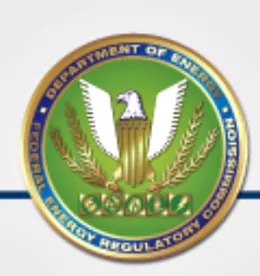FERC Issues Declaratory Order Finding Waiver of State Section 401 Authority
On February 20, 2020, the Federal Energy Regulatory Commission (FERC) issued a declaratory order finding that the California State Water Resources Control Board (Water Board) waived its authority under Section 401 of the Clean Water Act (CWA) to issue water quality certifications in the ongoing relicensing of six Southern California Edison Company (SCE) projects. SCE filed its petition in response to the U.S. Court of Appeals for the D.C. Circuit’s (D.C. Circuit) decision in Hoopa Valley Tribe v. FERC and FERC’s subsequent declaratory order in Placer County Water Agency. After the Water Board notified FERC that it intended to issue a single water quality certification covering all six projects, SCE withdrew and resubmitted its application each year between 2008 and 2017 at the direction of the Water Board. In November 2018, the Water Board denied SCE’s certification request without prejudice. After the D.C. Circuit issued its order in Hoopa Valley, SCE did not file a new certification application. However, in May 2019, with no application pending before it, the Water Board issued a final water quality certification for the six projects. SCE filed its petition for declaratory order asking FERC to declare that the Water Board had waived its certification authority under the Hoopa Valley decision.
FERC granted the petition, finding that the Water Board waived its Section 401 authority through the repeated withdrawal and refiling of SCE’s application for water quality certification. Consistent with its decision in Placer County Water Agency, FERC held that a formal agreement between a licensee and a state is not necessary to support a finding of waiver. In response to arguments from the Water Board that SCE voluntarily withdrew its application each year to avoid a denial without prejudice, FERC found that the Water Board expected and requested SCE’s withdrawal and resubmission each year to circumvent the one-year deadline under the CWA.
FERC also rejected the Water Board’s argument that a finding of waiver will not prevent further delay, because the Water Board has issued the water quality certification. FERC found that where a state certifying agency has waived its Section 401 authority, the later grant of a water quality certification has “no legal significance” and the water quality conditions are not mandatory. FERC noted, however, as it has in other orders, that even where a 401 certification is legally void, FERC’s policy, where time permits, is to review any certification conditions as recommendations under Section 10(a) of the Federal Power Act.
It is unclear whether the Water Board or other parties to the case will seek rehearing and, ultimately, court of appeals review of FERC’s declaratory order. No petition for review was filed in the Placer County Water Agency declaratory order proceeding. FERC has not yet issued new licenses in either case.
Bipartisan Energy Bill Introduced in the Senate
On February 27, 2020, U.S. Senators Lisa Murkowski (R-Alaska) and Joe Manchin (D-W.Va.), Chairman and Ranking Member of the Senate Energy and Natural Resources Committee, introduced S.2657, the American Energy Innovation Act (AEIA), a bipartisan energy bill. The proposed legislation compiles more than 50 energy-related measures that were considered and individually reported by the Senate Energy and Natural Resources Committee in 2019. In her press alert, Senator Murkowski called the bill “our best chance to modernize our nation’s energy policies in more than 12 years.”
The bill is divided into two titles. Title I focuses on promoting research and development of innovative energy technologies, including renewables and energy storage. Title II focuses on natural security and workforce development. The bill includes key provisions affecting that hydropower industry, including the Better Energy Storage Technology (BEST) Act (including pumped storage), the River Act to reauthorize Energy Policy Act of 2005 sections 242 and 243 to provide incentives for new projects on non-powered dams or upgrades of existing hydropower projects through fiscal year 2036, and the Marine Energy Research and Development Act, which provides for research on, and the development and deployment of, marine energy, defined as hydropower generated from waves, tides, currents, estuaries, or tidal areas, as well as from free-flowing (without the use of a dam or impoundment) waters in rivers, lakes, streams, or manmade channel.
The full Senate may consider the bill as early as next week.
FERC Establishes Rehearings Section to Expeditiously Process Rehearing Requests from Affected Landowners
On January 31, 2020, FERC Chairman Neil Chatterjee announced the creation of a new rehearings section within the Office of General Counsel. The rehearings section will be divided into two separate groups, a landowner rehearing group and a general rehearings group. The announcement follows Chatterjee’s September 2019 pledge to prioritize rehearing requests involving landowner issues, with a goal of issuing rehearing orders within 30 days and reducing the use of tolling orders.
Chairman Chatterjee’s announcement may be in response to an ongoing challenge in the D.C. Circuit to FERC’s use of tolling orders to extend the 30-day period under the Natural Gas Act for FERC to act on a rehearing request. As described in our prior newsletter, in that case, while the landowners’ request for rehearing and stay of FERC’s order approving the project was pending, the natural gas pipeline company exercised its eminent domain rights over the landowners’ property. FERC did not deny the landowners’ rehearing request until three months after construction on the project began. While the D.C. Circuit upheld FERC’s use of tolling orders, the court has granted rehearing en banc on this question. Oral argument is scheduled for March 31, 2020. The Federal Power Act contains a comparable provision requiring FERC action on a rehearing request within 30 days, and FERC routinely uses tolling orders to allow it additional time to act on rehearing requests of license and other hydropower orders. Thus, the D.C. Circuit’s en banc decision in this ongoing case will be highly relevant to hydropower cases.
House Republicans Release Climate Plan
On February 12, 2020, the U.S. House of Representatives Republican leadership released a climate plan that focuses on using trees and technology to capture carbon emissions from fossil fuels. House Republicans released its proposed plan shortly after the release of the House Democrat’s draft CLEAN Future Act, overviewed in our prior newsletter. The Republican Climate plan contains four distinct bills. First, the proposed legislation contains a bill to permanently extend the carbon sequestration tax credit, 45Q, which was approved by Congress in 2018 and signed by President Trump. Second, the Carbon Capture, Utilization, and Storage Innovation Act directs additional projects focused on carbon capture. Third, the New Energy Frontiers Through Carbon Innovation Act of 2020 would amend the Energy Policy Act of 2005 to include research on carbon capture. Fourth, the Trillion Trees Act sets a goal for the United States to plant a trillion trees by 2050 to fight global warming. The plan was introduced without Democratic co-sponsors.
DOE and Bureau of Reclamation Announce Fish Protection Prize
On January 27, 2020, the Department of Energy (DOE) Water Power Technologies Office, in collaboration with the U.S. Bureau of Reclamation, announced the opening of the Fish Protection Prize focusing on developing more reliable and sustainable water structures while protecting fish from traveling into dangerous waters, diversions, and intakes. The Prize is designed to improve fish exclusion technology by decreasing the number of entrained fish from river and canal diversions, unscreened diversions, or intakes at hydropower dams.
The Prize is based on the American-Made Challenges Prize Model, and DOE and the Bureau of Reclamation will jointly run the competition. There will be three winners ultimately awarded up to $700,000 of combined cash prizes. The competition is meant to inspire U.S. entrepreneurs. The first of three stages, the concept stage, began on January 15 and will continue until April 15. During this stage, applicants can submit up to 10-page submissions on their proposed concept for successful, cost-effective fish exclusion at water diversions and intakes. Up to 10 such submissions will proceed to stage 2. Stage 2, the incubation stage, runs from June 2020 to August 2020, where finalists will receive 50 hours of support from Pacific Northwest Laboratory. The third and final stage will occur in September 2020, where participants will present their innovations to a live audience and three competitors will be awarded prizes to support the advancement of their technologies.




 />i
/>i

